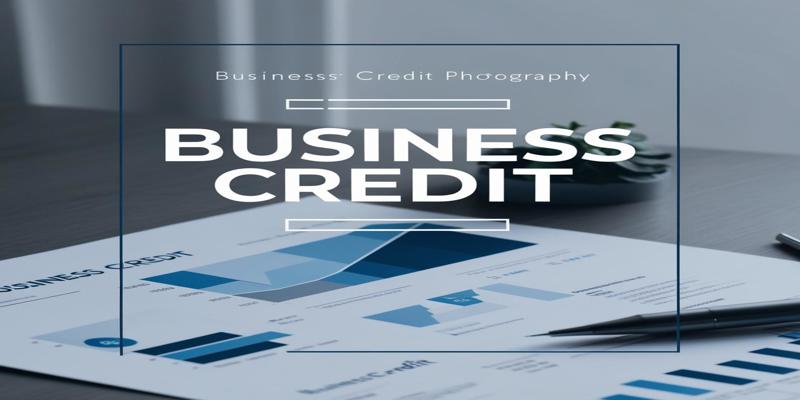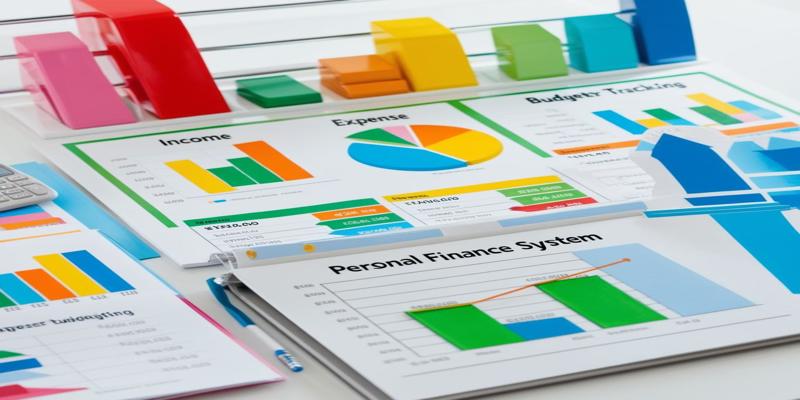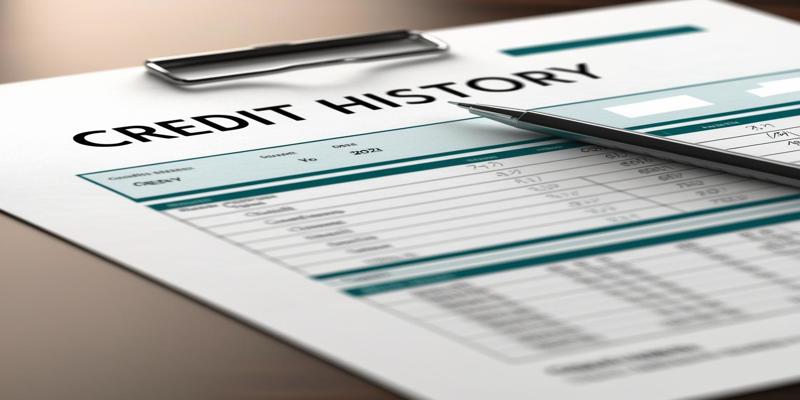A Guide to Establishing and Building Business Credit
Dec 09, 2024 By Sid Leonard
A good business credit profile is the basis on which your company stands in its hunt for financial health and growth potential. You will soon realize that building business credit requires strategy and consistent effort. In this comprehensive guide, you will learn about the significant steps taken to lay a great credit foundation in the case of your venture.
How Business Credit Works and How It's Different from Personal Credit
 Business credit is a critical enterprise asset; it needs to be more understood or understood with personal credit. Now, let's get into the details and talk about the key differences and why they matter for your enterprise.
Business credit is a critical enterprise asset; it needs to be more understood or understood with personal credit. Now, let's get into the details and talk about the key differences and why they matter for your enterprise.
Business Credit Defined
Business credit reflects your company's capability to act financially responsibly; its creditworthiness, in other words. This is quite different from your credit score, and it's linked with your business Employer Identification Number, not your Social Security Number. The separation is necessary to protect individual assets and scale business operations.
How It Differs from Personal Credit
Agency Reporting: While personal credit is monitored by the big three bureaus, Equifax, Experian, and TransUnion, business credit is monitored by Dun & Bradstreet, Experian Business, and Equifax Business. Business credit limits are typically much higher than personal credit limits, allowing larger purchases and investments. Public Privacy: While personal credit scores remain private, business credit reports are public; anyone willing to pay for a report can access the history.
Why Business Credit Matters
Substantial business credits open the door to better financing options, lower interest rates, and more favorable supplier payment terms. They add credibility to your company and form a deciding factor when tendering for contracts or finding partnerships.
Understanding these differences fully will better position you to create and use business credit to stimulate growth and insulate personal finances. A strong business credit profile is an essential addition to your entrepreneurial arsenal.
Benefits of Building Healthy Business Credit
Good business credit lays the foundation for a successful company with growth aspirations. It opens up a whole world of possibilities that can pay huge dividends in your company's financial health and future growth.
More Access to Capital
One significant advantage of solid business credit is greater access to more sources of financing. With a sound credit profile, your business will be more attractive to lenders, improving the possibility of securing loans, lines of credit, and other forms of financing. This may be very helpful in funding expansion projects, taking inventory, or seeing your business through slow periods.
Better Terms and Lower Interest Rates
A good business credit score generally leads to better loan terms and low interest rates. Lenders see companies with good credit as less of a risk, which can save a lot of money over time. Those better terms will free your capital for other worthy business projects and contribute to growing your company in profitability.
Improved Business Relationships
Good business credit also influences your relations with your supplier or vendor. Many suppliers extend trade credit to those businesses with good profiles, meaning you can purchase certain goods or services on account and pay for them at a future date. This, again, improves cash flow management by giving more flexibility to operations.
Separation of Personal and Business Finances
A solid business credit foundation creates a concrete separation between your personal and business finances. This, in turn, protects not only your assets but also enables your business to stand on its merits financially. Of course, this entails less need to sign personal guarantees for your business transactions with better business credit, reducing your financial liability.
Building Business Credit from Scratch
 A healthy business credit profile is paramount to your business's long-term success and financial health. Accomplish these steps to set an ideal foundation for business credit from scratch.
A healthy business credit profile is paramount to your business's long-term success and financial health. Accomplish these steps to set an ideal foundation for business credit from scratch.
Incorporate Your Business and Acquire Essential Records
First, one must make sure a company is set up correctly. This means establishing the proper type of legal business entity, such as an LLC or corporation, that will provide legal separation between one's personal and business finances. This is followed by the application for an Employer Identification Number through the IRS, which serves as your business's tax identification. Each step gives your company an identity in the eyes of its creditors and financial institutions.
Open a Business Bank Account and Credit Card
Once your business is registered, create a new, separate business bank account. This will further separate your personal and business financesa building block for business credit. Apply for a business credit card, even if it requires a security deposit to open. Make small purchases on the card and pay it in full monthly to create a positive payment history.
Work with Vendors and Suppliers Who Report to Credit Bureaus
Look for vendors and suppliers that will report your payment activities to major business credit bureaus such as Dun & Bradstreet, Experian, and Equifax. The focus should be establishing trade lines with these companies and paying your invoices promptly or before they are required. This is the surefire way to ensure a good credit history for your business, showing other future creditors that your company is responsible.
Monitor and Maintain Your Business Credit Profile
From time to time, check your business credit reports for accuracy and correct any errors you may find promptly. Pay all bills on time and keep the credit utilization ratios as low as possible. Because a higher profile provides expanded access to better financing, higher credit limits, and better terms, setting one up usually positions the company for long-term growth and success.
How to Build Business Credit Strategies
Set up Open Credit Accounts with Your Suppliers
Setting up credit accounts with suppliers is another effective way to build your business credit score. First, find out which vendors report to major business credit bureaus. Please set up an account with them and make timely payments every month. This projects how well your company handles credit and positively reflects your business credit score.
Use a Business Credit Card Responsibly
Another widely used and effective method of building credit involves getting and using a business credit card. Find one that reports to a business credit bureau, use it for routine expenses, and pay the total monthly balance to avoid interest charges. This will show how responsible your company is regarding finances. Over time, this consistent pattern of use and pay can go a long way in improving your business credit score.
Monitor and Dispute Errors
Schedule regular checks on your business credit report from accredited bureaus, such as Dun & Bradstreet, Experian, and Equifax. To ensure your score reflects your business's creditworthiness, note the areas if there is some wrong or outdated information on your report that may be affecting your score. Go ahead and dispute it with the appropriate credit bureau.
Maintain a Low Credit Utilization Ratio
Your credit utilization ratio-what percent of the credit you use versus your total available credit-is a massive piece of your business credit score. Keep it under 30%. This will show the creditors that you are not very reliant on credit and can handle your money wisely. If necessary, ask for credit line increases to help your utilization ratio.
Conclusion
Building business credit is among the most fundamental investments in any firm's development and financial stability. By following this guide's steps, one can develop a strong credit profile that unlocks numerous opportunities for better financing, among other business opportunities. With patience and reasonable diligence, you're on your way to a robust business credit score that may last for many years at your company.








